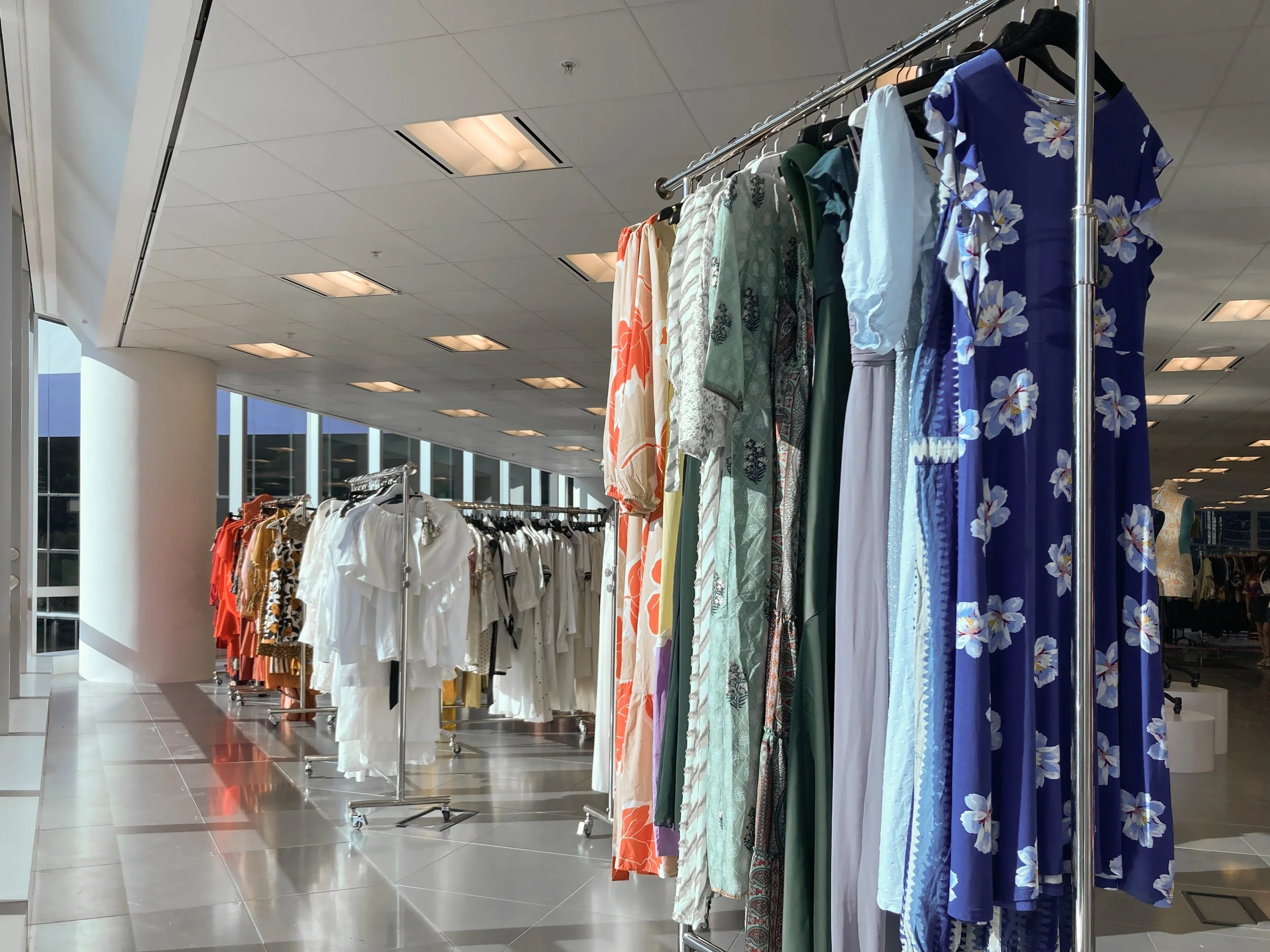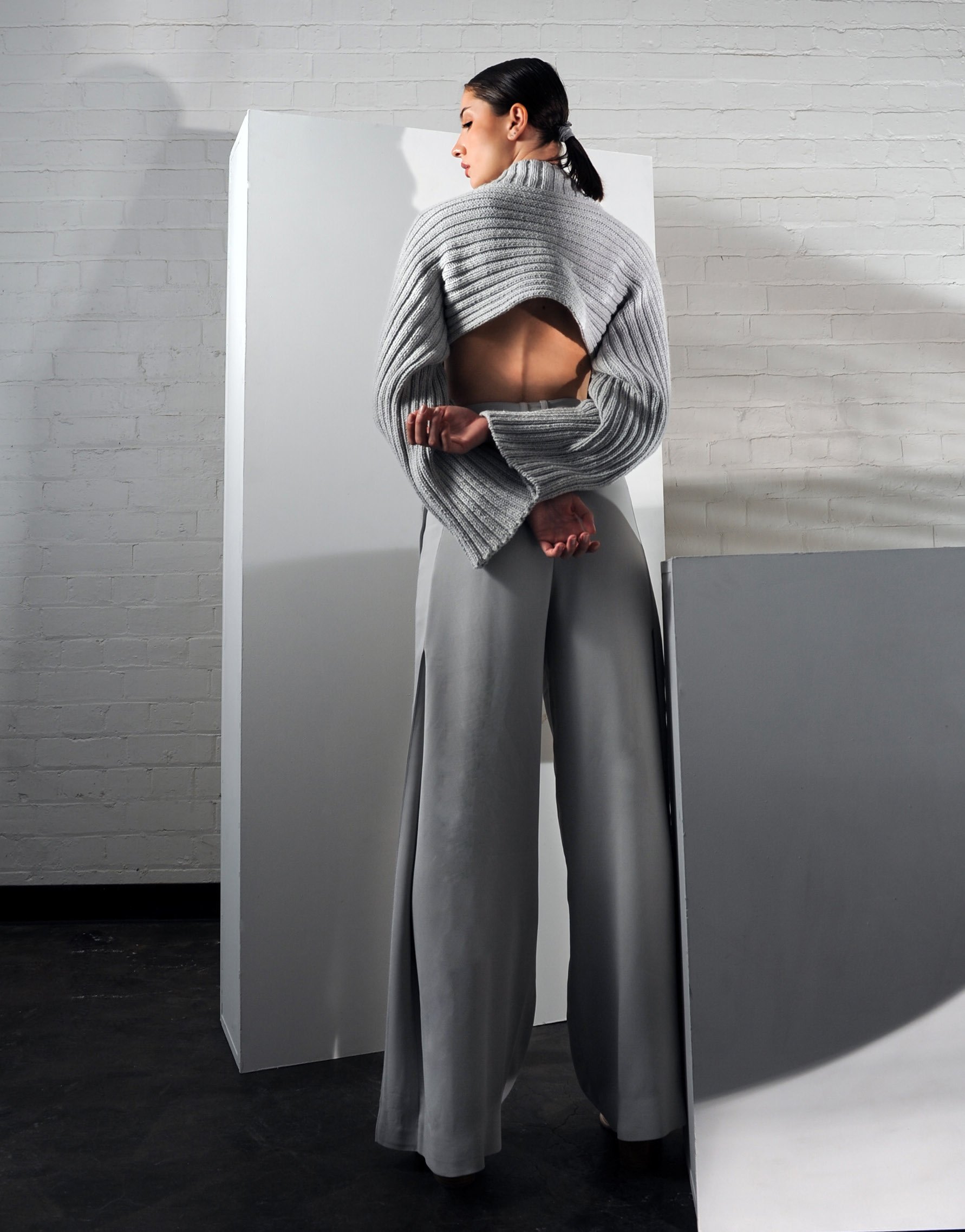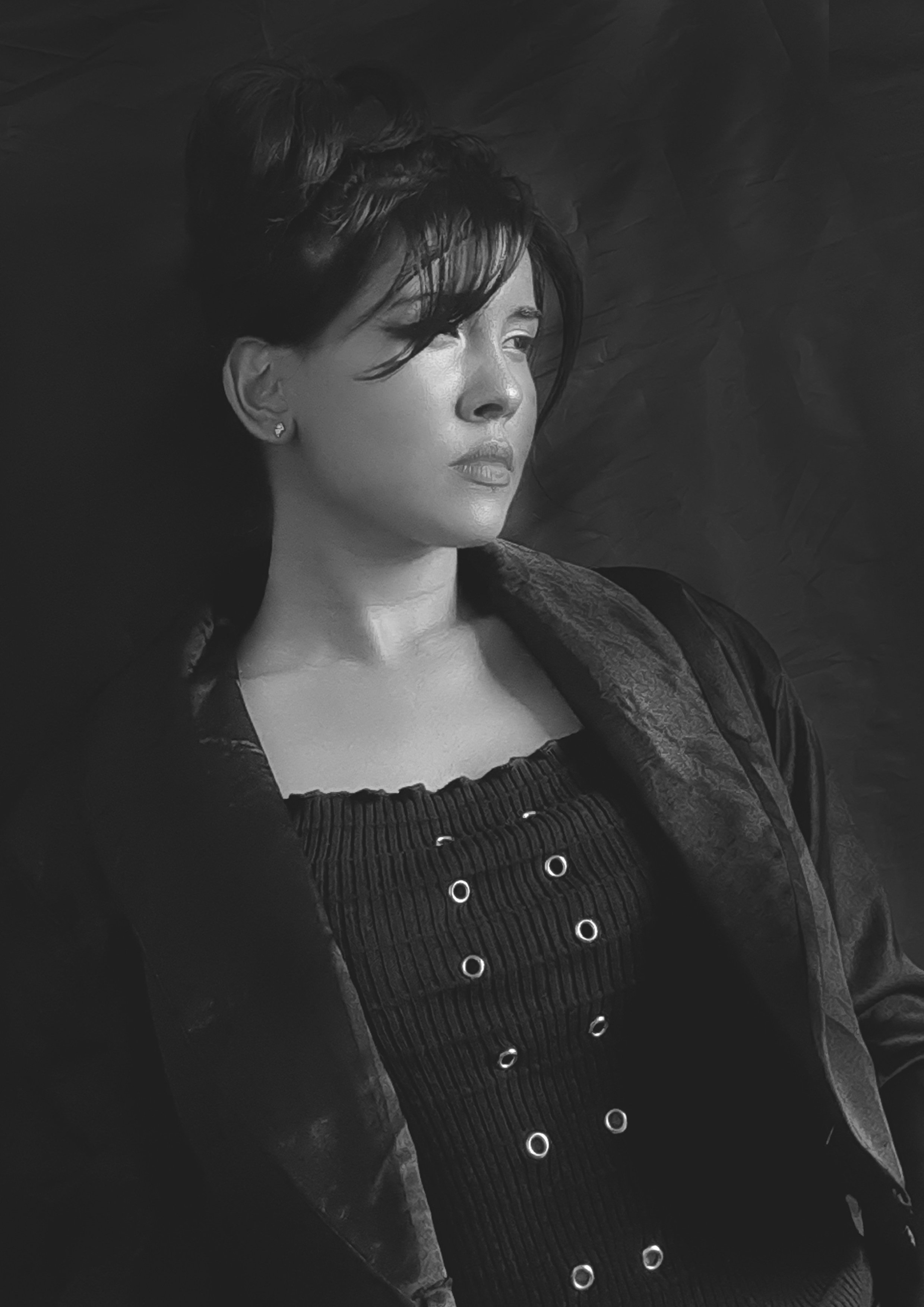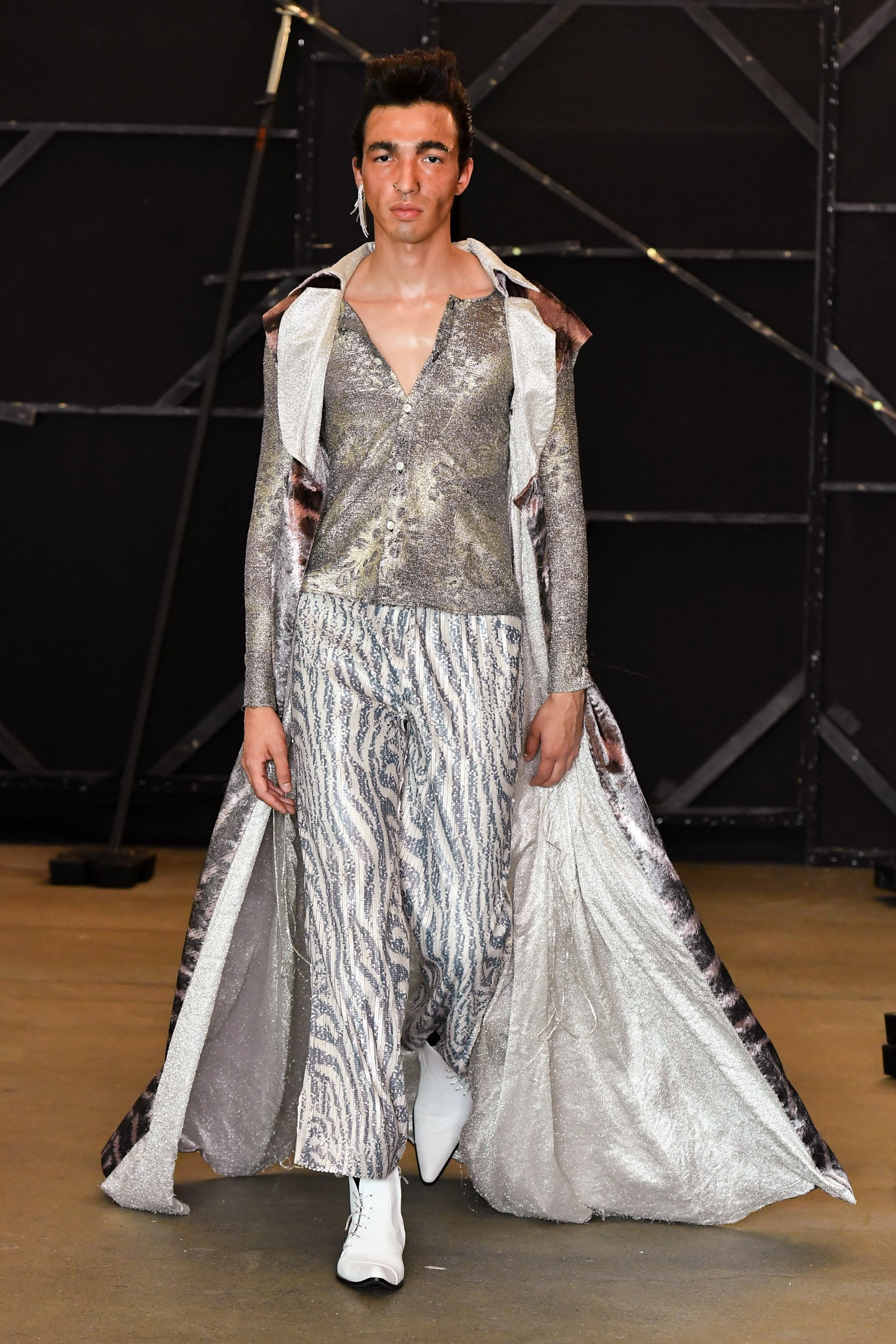Lívia Castro

Lívia Castro
BRAZIL
“Sustainable fashion means to construct a world of possibilities, to transform trash into products to create new ways to picture consumption and ourselves.”
Showcasing an ability to make something extraordinary out of the ordinary, for her collection Lívia Castro turned to a wardrobe staple: jeans. Despite their basic outlook, she found inspiration to transform them from the texture and uniqueness of each pair.
“Jeans are part of a collective identity,” shares the designer, who holds a BA in Fashion Design from FUMEC University, Brazil. “I wanted to create unique pieces that people could connect with and care for years.”
Her collection ‘HeritageBlue’ honours the legacy of jeans while incorporating a plaid handmade pattern to create unique pieces based on personalities. With jeans being such a classic item, the choice of subject encourages their longevity in the wardrobes of consumers. “Fashion is like our second skin, the way we show ourselves to the world,” she says.
Lívia rips the locally sourced jeans to create plaid patterns and stripes with a rustic finish for manual weaving, transforming the belt loop into buttons and reusing the back pockets in the new designs. To avoid cut waste, the clothes are modelled on paper, with the plaid patterns then layered on top of it. After shapes are cut, the pieces are used in the denim dress. Leftover triangles from ripping between the legs are sewn to create an evasé balloon shape, while distress patterns from cutting are incorporated into the shoulder pads and garment finishing.
Considering the large amount of resources that go into producing a pair of jeans, Lívia recognises the value of prolonging their lifecycle. “Denim has the characteristic of appreciating in value with time and ageing beautifully. That’s why I see my garments being fixed and passed through generations.” Her jeans and sewing materials are sourced locally, further reducing their carbon footprint.
To design for recyclability, Lívia chose to work only with jeans composed of cotton and to sew with cotton thread. She also plans to offer a takeback programme to transform her clothes after consumers are done with them, and partner with an artisanal paper production collective to deal with waste.
Lívia looks forward to developing her brand RE.TRAMA, scaling production to sell globally but produce locally. She is committed to working with secondhand materials and partnering with other brands to transform their waste into sustainable products.
Congratulations to Redress for successfully organising the Redress Design Award 2022.
We would like to thank all of our sponsors and partners, without whom the Redress Design Award would not be possible.
Tanja Wessels challenged herself to not buying a single item of new clothing. Read her tips on how you can do it too.
The Redress Design Award is more than just the world’s largest sustainable fashion design competition.
Dive into our photoshoot shining a new light on the future creative frontrunners.
See the stunning looks from the finalists’ collections in our first ever lookbook, professionally styled and shot in studio with Farfetch.
Discover what Redress Design Award alumni have been accomplishing recently, from fashion weeks to master’s collections, publishing research, brand collaborations, and more.
Ashutosh Panda found inspiration for his sustainable collection by looking to the stars — specifically, the magnetar, one of the most powerful neutron stars of the universe.
As a Latino living in Tokyo, Japan, Cris Miranda discovered the beautiful craftsmanship of the kimono and admired its deep cultural meaning and high quality fabric.
For designer Drina Marco, the Spanish word “monda” — meaning “fruit peel” — was the first layer to what would become her sustainable collection.
Federico Badini Confalonieri has always valued nature and the environment. When he learned of the massive issue of microplastics in fashion, he knew he had to find a way to address it.
Showcasing an ability to make something extraordinary out of the ordinary, for her collection Lívia Castro turned to a wardrobe staple: jeans.
When a transgender friend experienced cyberbullying, Nawoda Bandara decided to show solidarity through design.
Seeing fashion companies abandon their garment and fabric samples without much care raised alarms for Patrick Lam.
The collapse of Meethotamulla, a massive garbage dump, on homes in Colombo, Sri Lanka, killed over 30 people, including children — and was a turning point in the life of designer Ruwanthi Gajadeera.
Reflecting the competition’s creative legacy of revaluing waste, the editorial photoshoot of the Redress Design Award 2022 unveils a warehouse of renewed wear to showcase our finalists’ looks.
Since the approval of the EU Green Deal in 2019, the European Union has emerged as the world’s leading policy maker on sustainability issues.
After winning the Redress Design Award 2021, Jessica Chang immediately joined the Timberland design team in China, working remotely to collaborate on their upcoming Lunar New Year 2023 collection, ‘Year of the Rabbit’.
Shop or browse the latest sustainable collections from Redress Design Award alumni brands.





























